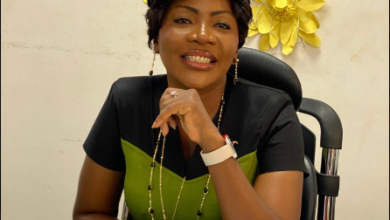
|
Getting your Trinity Audio player ready...
|
Governor Muhammed Umaru Bago of Niger State has announced a new policy mandating that all vice-chair positions in the 25 local government areas be reserved exclusively for women in the upcoming local government elections.
While this decision is framed as a progressive step toward gender inclusivity, many argue it reinforces the systemic barriers that keep women from attaining true leadership positions.
Governor Bago emphasised that women have long been marginalised despite their significant contributions to society, stressing the need for greater inclusion in leadership roles. He described women as pivotal to national growth and development, highlighting their ability to drive progress when given opportunities.
“Empowering women at the local government level is not just about fairness; it is a strategic move for sustainable development across the state and the country,” he stated.
In a statement released by his Special Adviser on Print Media, Aisha Wakaso, in Minna, Governor Bago reiterated his administration’s commitment to breaking barriers for women in leadership. He urged stakeholders of the All Progressives Congress (APC) in Niger State to support the initiative, emphasising the importance of inclusivity in governance.
This decision has sparked mixed reactions, with many feminists and social media users arguing that leadership positions should be earned based on merit and not higher positions automatically reserved for men while lower positions are reserved for women.
Nigerian feminist @sugabelly described the move as “benevolent patriarchy,” arguing that it disguises discrimination against women as support.
“This is an example of benevolent patriarchy. Hatred of women disguised as helping women. The positions for women are all conveniently lower than the ones men are now free to fully occupy,” Sugabelly said.
Criticising the policy, @TheFavoredWoman called it “nonsense,” asserting that women should compete for both chair and vice position on merit.
“Let women compete for chair or vice position and win on their own merit. This patronising “dashing” position is not supporting women. It’s a back-handed way of ensuring that women are seen as lower and inferior.”
Similarly, an X user, @mirachijioke, dismissed the policy as tokenism, stating that leadership positions should be based on competence rather than gender. “Competent people should be elected whether men or women.”
Women have always been underrepresented in leadership positions, often facing barriers that prevent them from attaining top roles. Even when encouraged to participate in governance, they are frequently steered toward lower positions rather than being given equal opportunities to compete for higher offices.
This policy, while acknowledging the importance of women’s participation in governance, ultimately reinforces the idea that women belong in supporting roles rather than leading at the highest levels. The debate continues as feminists and advocates push for true gender equality, one that grants women access to all leadership positions, not just the ones left over.






